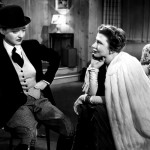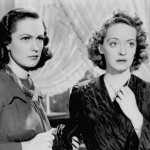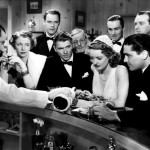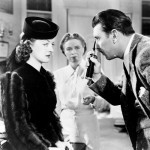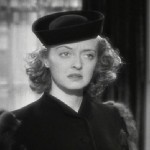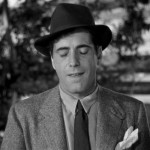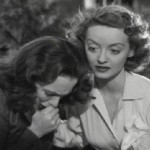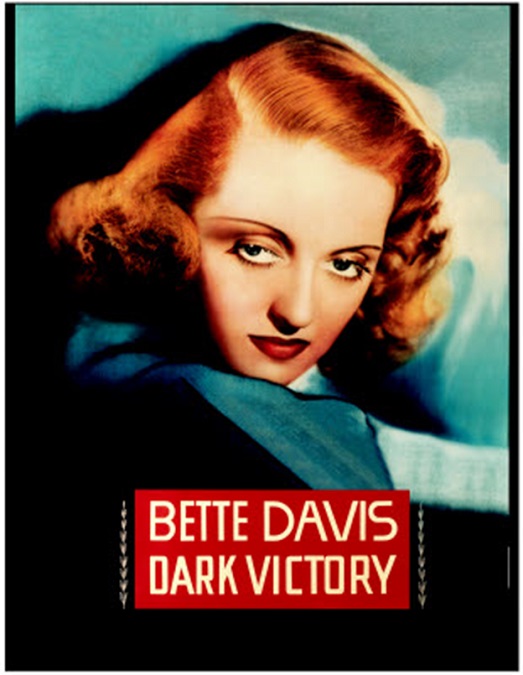
Dark Victory – 1939
Dark Victory starred Bette Davis in a role that was not typical. First, the character she played, wealthy socialite Judith Traherne, was actually a nice person. I mention that because most of the roles she is best known for are vicious and mean. Second, it was not typical for a lead actress, especially one as big as Davis to take a role in which the character dies at the end. And third, the death was not one that was in any way spectacular or grand.
But that was the point of the film. Judith died of a malignant brain tumor. We learn that this will happen fairly early on in the film. But it was not a movie about a woman fighting against her own mortality. It was about how she and those who loved her came to terms with, and in the end, learned to be at peace with her unavoidable death.
George Brent played Dr. Frederick Steele, her physician. Judith’s best friend and personal assistant was Ann King, played by Geraldine Fitzgerald. And there were a few more names that you might recognize rounding out the cast in smaller roles. Humphrey Bogart played Michael O’Leary, Judith’s stable hand, and Ronald Reagan played her wealthy playboy friend. Yes, Reagan was quite handsome in those days.
As I mentioned, Judith was a nice person. True, she was a partier, but a fun one. She was generous and kind, though she had a tendency to drink and smoke too much. By today’s standards, drinking and smoking don’t make you a bad person, but in the 1930s they were considered hedonistic behavior. And for a woman to be a drinker and a smoker… scandalous! But that was Bette Davis. She was nothing if not a rebel and a risk-taker, both on-screen and off. The trailer for Dark Victory used a catch-line that said “She’s EVERYTHING and woman can DARE to be!” But Judith didn’t seem to have a mean bone in her body, at least not the way Davis played her.
On the contrary, I think her character had very believable and human reactions to everything that happened. I’ll explain. She has terrible recurring headaches and tries to ignore them. But when she starts having blurred vision and dizzy spells, Ann gets her to see a doctor. The doctor sends her to a specialist, Dr. Steele, and perfunctory tests are done.
At this point she is terribly afraid. She resists and is uncooperative. She is in denial that she even has a problem. Fear and denial sound like a normal reactions to me. But Dr. Steele gets her to cooperate and gets her to have brain surgery, which was a much more frightening prospect back then than it is today.
But during the surgery, Steele learns that her brain tumor is of a rare kind. It is definitely malignant and definitely terminal. Judith has around ten months to live. But here is where the good doctor proves to be a terrible one. His first reaction is to LIE TO HER!! Well, when her death comes, it will be swift and painless, so why tell her at all? Just let her live out her remaining days in total ignorance! Ann figures out that something is wrong and forces the truth out of him. But not to worry. She lies to Judith as well.
So, what do you think happens next? Judith and Dr. Steele discover that they have feelings for each other, and why not? Judith’s headaches are gone and she thinks she is cured. Of course, she falls in love with the handsome doctor who saved her life. And the horrible doctor plays into her obvious transference issues because he falls in love with her as well. Completely unprofessional!!
But just to add more drama, Judith snoops in her fiancé’s office and reads her own file. She learns the truth and now she gets angry with Steele and Anne for their unbelievable deception. And she has every right to be! How would you react? But by this time she is too deeply in love. She forgives him and ends up marrying him.
The real meat of the film is that last third in which she comes to terms with the prospect of dying and is finally unafraid. She learns to live her life without fear and savor every moment as if it was her last. The ending, her ending, was quiet and unremarkable, except that in accepting death as a necessary part of life, she conquered it. And that… was her dark victory.
